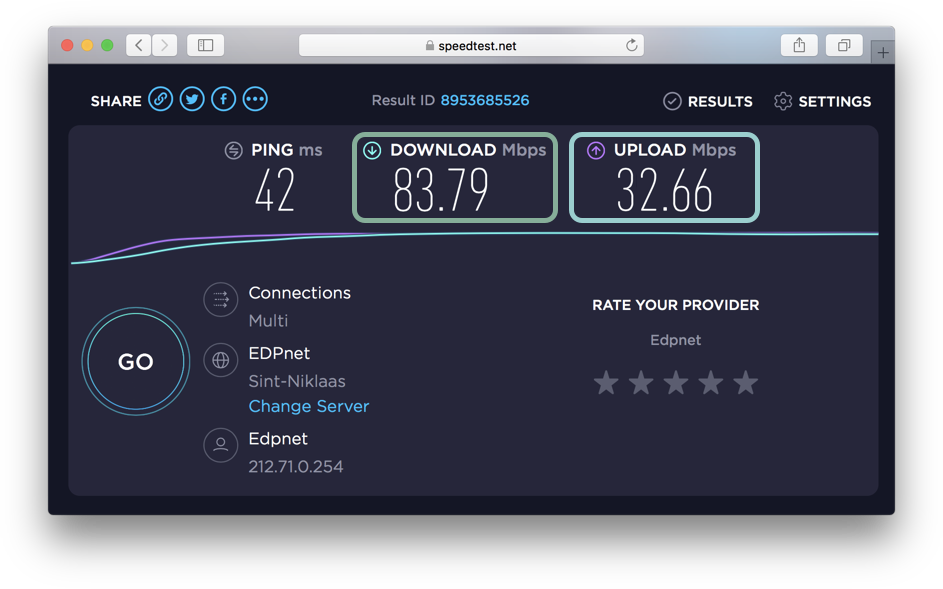What's the difference between downloading and uploading
Downloading refers to data that your computer receives from a remote server. Loading webpages, receiving emails, getting songs, movies or other documents, it’s all downloading.
Uploading means data is being sent from your computer to a remote server. Examples of uploading include video calls or conferencing, sending emails, backing up data to online or adding images and videos to social media. Even clicking on a link on a webpage results in a tiny amount of data sent to the server where the page is hosted.
Both download and upload speeds are measured in Megabits per second (Mbps).

Why is download speed higher than upload?
First of all, it’s a limitation of the medium. The frequency band used by a VDSL connection is limited and has to be divided between upload and download. More bandwidth is deliberately allocated to download to meet the demands of majority of home users, just because most online activities like loading webpages, downloading files and using streaming services such as Netflix require a decent download speed. With the rise of live streaming, numerous cloud services and VoIP telephony, the things are changing, but most of us still download more than we upload.
Fiber connections offer much higher capacity, but the bandwidth shared among users connected to the same exchange is still higher in downstream than in upstream: 2,5 Gbps and 1,2 Gbps, respectively.
See also:
What's the difference between Megabits and Megabytes
